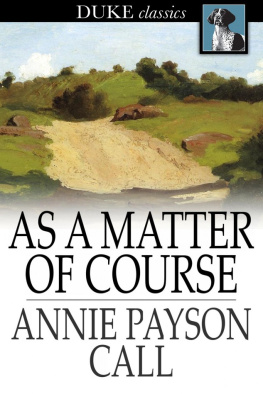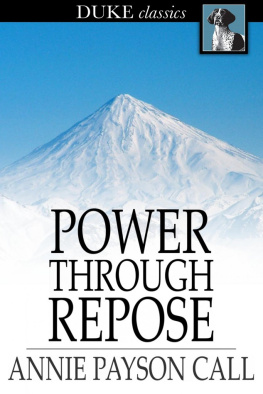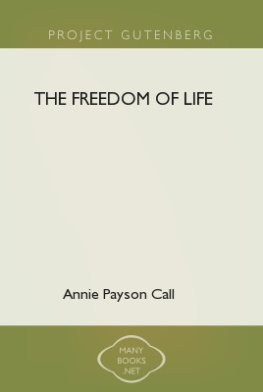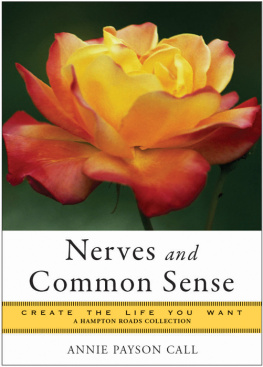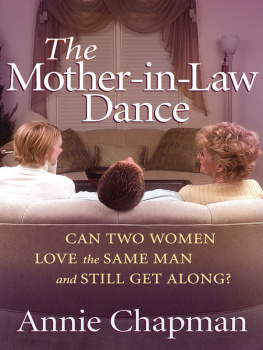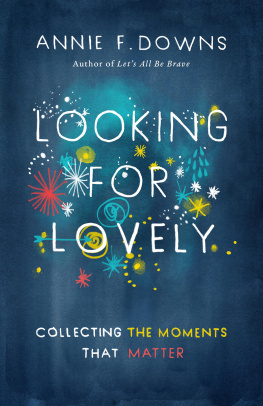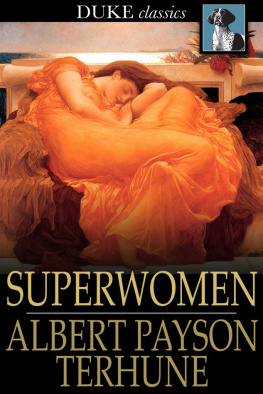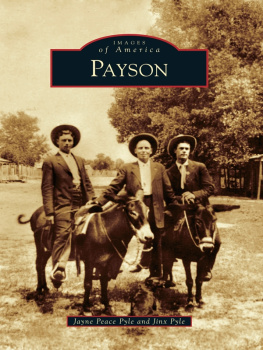AS A MATTER OF COURSE
* * *
ANNIE PAYSON CALL
*
As a Matter of Course
First published in 1894
ISBN 978-1-62012-439-0
Duke Classics
2012 Duke Classics and its licensors. All rights reserved.
While every effort has been used to ensure the accuracy and reliability of the information contained in this edition, Duke Classics does not assume liability or responsibility for any errors or omissions in this book. Duke Classics does not accept responsibility for loss suffered as a result of reliance upon the accuracy or currency of information contained in this book.
Contents
*
Preface
*
THE aim of this book is to assist towards the removal of nervousirritants, which are not only the cause of much physical disease,but materially interfere with the best possibilities of usefulnessand pleasure in everyday life.
I - Introduction
*
IN climbing a mountain, if we know the path and take it as a matterof course, we are free to enjoy the beauties of the surroundingcountry. If in the same journey we see a stone in the way andrecognize our ability to step over it, we do so at once, and saveourselves from tripping or from useless waste of time and thought asto how we might best go round it.
There are stones upon stones in every-day life which might bestepped over with perfect ease, but which, curiously enough, areconsidered from all sides and then tripped upon; and the result is astubbing of the moral toes, and a consequent irritation of thenervous system. Or, if semi-occasionally one of these stones isstepped over as a matter of course, the danger is that attention isimmediately called to the action by admiring friends, or by theperson himself, in a way so to tickle the nervous system that itamounts to an irritation, and causes him to trip over the nextstone, and finally tumble on his nose. Then, if he is not wiseenough to pick himself up and walk on with the renewed ability ofstepping over future stones, he remains on his nose far longer thanis either necessary or advisable.
These various stones in the way do more towards keeping a nervoussystem in a chronic state of irritation than is imagined. They arewhat might perhaps be called the outside elements of life. Theseonce normally faced, cease to exist as impediments, dwindle away,and finally disappear altogether.
Thus we are enabled to get nearer the kernel, and have a growingrealization of life itself.
Civilization may give a man new freedom, a freedom beyond any powerof description or conception, except to those who achieve it, or itmay so bind him body and soul that in moments when he recognizes hisnervous contractions he would willingly sell his hope of immortalityto be a wild horse or tiger for the rest of his days.
These stones in the way are the result of a perversion ofcivilization, and the cause of much contraction and unnecessarysuffering.
There is the physical stone. If the health of the body were attendedto as a matter of course, as its cleanliness is attended to by thoseof us who are more civilized, how much easier life might be! Indeed,the various trippings on, and endeavors to encircle, this physicalstone, raise many phantom stones, and the severity of the fall isjust as great when one trips over a stone that is not there. DonQuixote was quite exhausted when he had been fighting the windmills.One recognizes over and over the truth spoken by the little girlwho, when reprimanded by her father for being fretful, said: "Itisn't me, papa, it's that banana."
There is also the over-serious stone; and this, so far from beingstepped over or any effort made to encircle it, is often raised tothe undue dignity of a throne, and not rested upon. It seems toproduce an inability for any sort of recreation, and a scorn of thenecessity or the pleasure of being amused. Every one will admit thatrecreation is one swing of life's pendulum; and in proportion to theswing in that direction will be the strength of the swing in theother direction, and vice versa.
One kind of stone which is not the least among the self-madeimpediments is the microscopic faculty which most of us possess forincreasing small, inoffensive pebbles to good-sized rocks. A quietinsistence on seeing these pebbles in their natural size wouldreduce them shortly to a pile of sand which might be easily smoothedto a level, and add to the comfort of the path. Moods are stoneswhich not only may be stepped over, but kicked right out of the pathwith a good bold stroke. And the stones of intolerance may bereplaced by an open sympathy,an ability to take the other's pointof view,which will bring flowers in the path instead.
In dealing with ourselves and others there are stones innumerable,if one chooses to regard them, and a steadily decreasing number asone steps over and ignores. In our relations with illness andpoverty, so-called, the ghosts of stones multiply themselves as theillness or the poverty is allowed to be a limit rather than a guide.And there is nothing that exorcises all such ghosts more truly thana free and open intercourse with little children.
If we take this business of slipping over our various nerve-stonesas a matter of course, and not as a matter of sentiment, we get apowerful result just as surely as we get powerful results inobedience to any other practical laws.
In bygone generations men used to fight and kill one another for themost trivial cause. As civilization increased, self-control wasmagnified into a virtue, and the man who governed himself andallowed his neighbor to escape unslain was regarded as a hero.Subsequently, general slashing was found to be incompatible with awell-ordered community, and forbearance in killing or scratching orany other unseemly manner of attacking an enemy was taken as amatter of course.
Nowadays we do not know how often this old desire to kill isrepressed, a brain-impression of hatred thereby intensified, and anervous irritation caused which has its effect upon the entiredisposition. It would hardly be feasible to return to the killing tosave the irritation that follows repression; civilization has takenus too far for that. But civilization does not necessarily meanrepression. There are many refinements of barbarity in ourcivilization which might be dropped now, as the coarser expressionsof such states were dropped by our ancestors to enable them to reachthe present stage of knives and forks and napkins. And inasmuch aswe are farther on the way towards a true civilization, our progressshould be more rapid than that of our barbaric grandfathers. Anincreasingly accelerated progress has proved possible in scientificresearch and discovery; why not, then, in our practical dealingswith ourselves and one another?
Does it not seem likely that the various forms of nervousirritation, excitement, or disease may result as much from therepressed savage within us as from the complexity of civilization?The remedy is, not to let the savage have his own way; with many ofus, indeed, this would be difficult, because of the generations ofrepression behind us. It is to cast his skin, so to speak, and riseto another order of living.
Certainly repression is only apparent progress. No good physicianwould allow it in bodily disease, and, on careful observation, thelaw seems to hold good in other phases of life.
There must be a practical way by which these stones, these survivalsof barbaric times, may be stepped over and made finally todisappear.
The first necessity is to take the practical way, and not thesentimental. Thus true sentiment is found, not lost.

